expiredJZ1989 posted Jun 08, 2021 12:34 AM
Item 1 of 5
Item 1 of 5
expiredJZ1989 posted Jun 08, 2021 12:34 AM
UGREEN Cat 8 Ethernet Cable 6FT 40Gbps 2000Mhz High Speed $5.24 + Free Shipping w/ Amazon Prime or Orders $25+
$5.24
$6.99
25% offAmazon
Visit AmazonGood Deal
Bad Deal
Save
Share
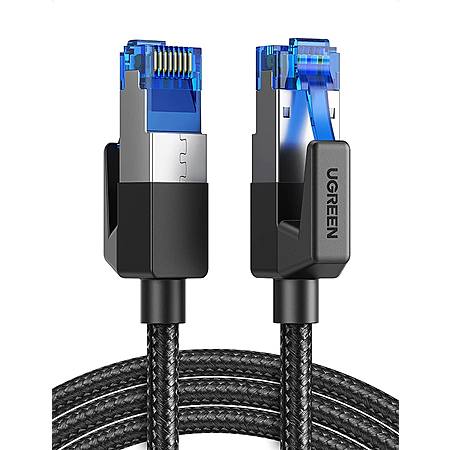
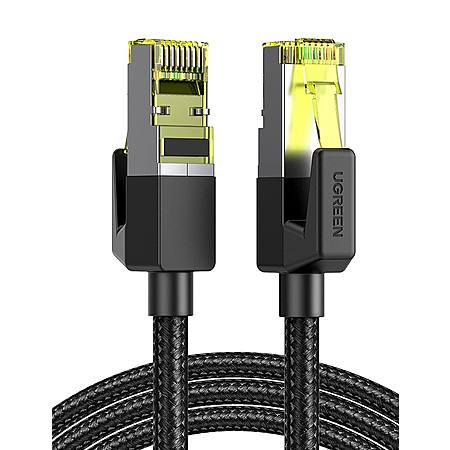
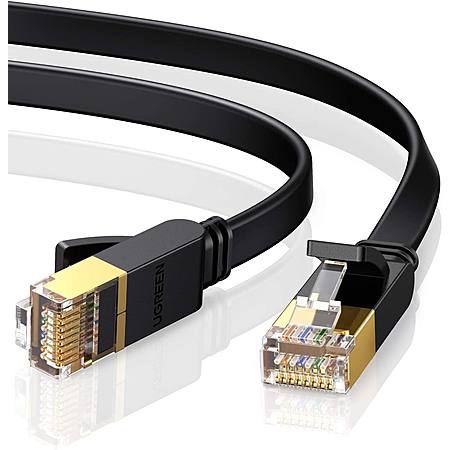
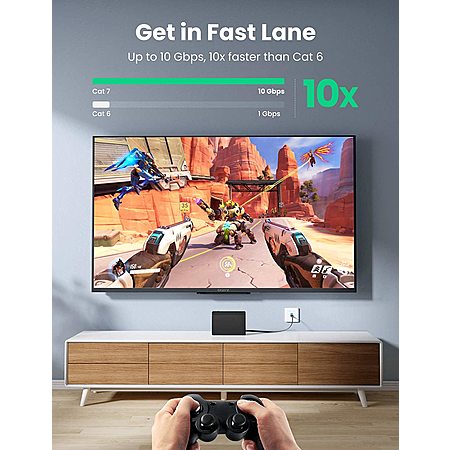
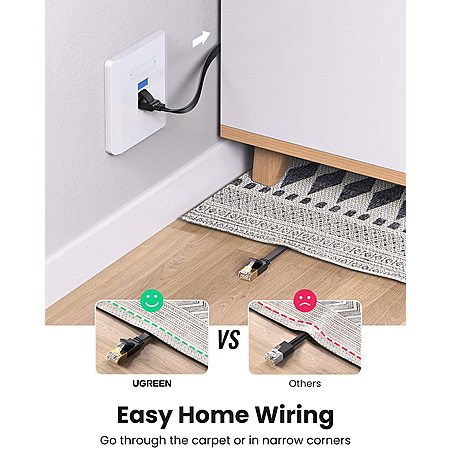

Leave a Comment
70 Comments
Sign up for a Slickdeals account to remove this ad.
40GBASE-T is a port type for 4-pair balanced twisted-pair Cat.8 copper cabling up to 30 m defined in IEEE 802.3bq.[118] IEEE 802.3bq-2016 standard was approved by The IEEE-SA Standards Board on June 30, 2016.[119] It uses 16-level PAM signaling over four lanes at 3,200 MBaud each, scaled up from 10GBASE-T.
I do 10GbE with CAT7 (yes it's a thing, even though it's not ratified by the stupid TIA/EIA). This cable is just fancy looking Chinese junk with no specifications or testing data. Just unsubstantiated claims.
My point though was that no one is going to get 40Gbps of speed on a copper ethernet cable. I mean, we are just now starting to get 2.5Gbps nics out there. There is no 40Gpbs copper ethernet adapters out there so it seems silly to market a speed that no one can get.
But if you're rocking some of the new(ish) 1 or 2 Gbps Fiber connections, you minimally want Cat 6 installed, and especially if you're hardwiring anything. Go ahead and go run some speedtests.
Don't take my word for it, you can find all the info you need all over the internet.
I specifically mentioned the wire guage of the matched pairs as well as 100m/~320ft for degredation, not sure why you repeated it back to me like new information.
Why not just go for broke and crank out your 10Gbps on ISDL and really teach me a lesson in bull***t? 😉
http://www.kit-communications.
Not sure why people care if other people want higher grade products.
It's like griping at people for buying steak when they can survive just fine on hot dogs.
Sign up for a Slickdeals account to remove this ad.
OK smart guy, what consumer switches and routers support 40Gbps ethernet speeds. I'll wait for your genius self to answer.
Also, spec compliant copper cabling allows for CAT 5e up to 100m at 1Gbps (2.5Gbps & 5Gbps also possible due to new spec lowering the signaling rate). CAT 6A is designed for up to 100m at 10Gbps. CAT 6 is generally not deployed if 10Gbps support is planned because it's only designed for 10Gbps at reduce lengths (~55m). CAT 6A or fiber would be the preferred choice for 10Gbps.
But if you're rocking some of the new(ish) 1 or 2 Gbps Fiber connections, you minimally want Cat 6 installed, and especially if you're hardwiring anything. Go ahead and go run some speedtests.
Don't take my word for it, you can find all the info you need all over the internet.
IEEE 802.3ab, ratified in 1999, defines Gigabit Ethernet transmission over unshielded twisted pair (UTP) category 5, 5e or 6 cabling, and became known as 1000BASE-T. With the ratification of 802.3ab, Gigabit Ethernet became a desktop technology as organizations could use their existing copper cabling infrastructure.
IEEE 802.3ab, ratified in 1999, defines Gigabit Ethernet transmission over unshielded twisted pair (UTP) category 5, 5e or 6 cabling, and became known as 1000BASE-T. With the ratification of 802.3ab, Gigabit Ethernet became a desktop technology as organizations could use their existing copper cabling infrastructure.
As I keep stating- go for it. Run it everywhere. The difference of ~$17 for 1000 ft of Cat5e vs Cat6, I think people should always go for the cheapest option and never worry about anything else. 🙄
Go check out real world speed tests in a home wired with Cat5e to some outlets and Cat6 to some.
And FWIW: many things are "rated" to a specification and don't quite reach it.
A great example is HDMI cables.
But, I don't care. To each their own. I'll pay the marginal cost difference to do my best to stay ahead of the curve when possible.
Sign up for a Slickdeals account to remove this ad.
Cat 5, 5e, 6, and 6a are all fine for somebody's house.
The real bonus is that cat 7 and cat 8 requires double shielding to meet the specification, whereas it's optional in the others. If somebody has a lot of power tool use, then cat 7 is better for the future-proof obsessed.
Because of this cat 7 and cat 8 are both very thick and hard to bend, if you find cat 7 and cat 8 that are "flexible", "flat", or whatever other ease of use marketing term, then it is probably a garbage cable.
Leave a Comment